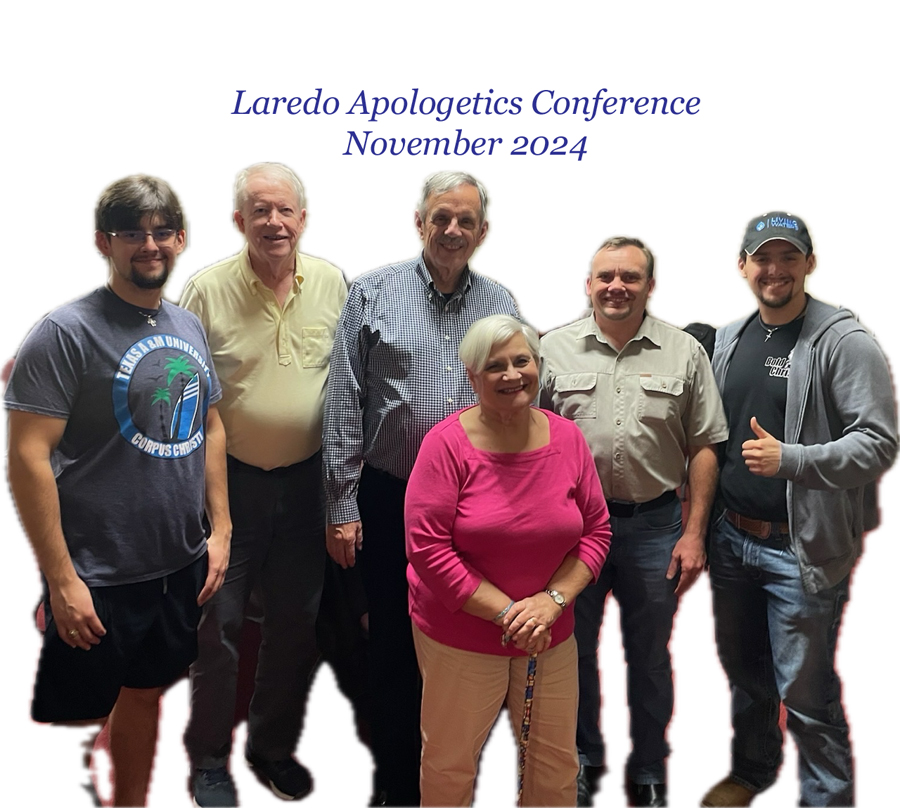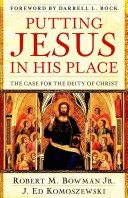A significant corner of the internet recently (October 28, 2024) blew up with a debate between Christian apologist Wes Huff and popular skeptic Billy Carson when their online debate went viral. Kyle Skaggs provides context and understanding.
In recent years, social media platforms that allow monetized live streaming services like Twitch and YouTube have gained significant importance. While live streaming first became popular for gaming content on Twitch, it quickly expanded its scope to more diverse mediums of engagement, the latest of which is the academic world.
The interactive format allows experts and enthusiasts to engage with diverse audiences in real-time, creating a more accessible form of dialogue. Live streaming services are slowly evolving into a hub for philosophical, religious, and ethical debates.
This year started with a debate over the reliability of the Scriptures, and the uniqueness and goodness of the Christian worldview went viral. So, why did it resonate with so many people, what happened during the debate, and what can it teach us about apologetics?
First, the popularity of streaming services on Twitch and YouTube among Millennials and Gen Z cannot be understated. For people my age and younger, these platforms are the most common way to learn different philosophies and worldviews rather than the classroom.
The Billy Carson–Wes Huff debate was initially to be between Carson, a popular Bible conspiracy theorist, and his friend Mark. Mark, believing he was not knowledgeable enough to do the subject matter justice, asked Director of Apologetics Canada, Wes Huff, if he would debate Carson while Mark moderated.
Huff thoroughly dismantled each of Carson’s arguments with historical and literary evidence. Shortly afterwards, Carson demanded Mark not to post the debate, a request that was ignored. Carson is now trying to sue Huff. The debate was already popular due to Carson and Mark’s substantial audiences, and it further went viral after Huff was invited to speak about it on Joe Rogan’s podcast.
Much of the debate’s three-hour runtime is padded out by the host, who tends to lead the conversation on tangents, and his statements largely add little to the debate. This, paired with his habit of over-explaining and repeating his questions, causes the debate to drag in places. However, this is offset by the quality content produced between Carson and Huff.
The topics covered are the inspiration and reliability of the scriptures, and the Christian worldview. The first point of the debate was the crucifixion of Jesus. Carson explained that the Gospel of Barnabas, which predates the KJV, does not mention the crucifixion. Furthermore, the Gospel of Jesus’s Wife, while controversial, is believed to be an accurate record that Jesus may have been married. This places the crucifixion in doubt.
Huff counters that the Gospel of Barnabas is a known forgery. We know it is a forgery because it is clear the author has no knowledge of the region, customs, and time of the first century. The author also paraphrased Dante’s Inferno. Internal evidence heavily suggests a medieval date, not to mention the only two copies of it are in late medieval Spanish and Italian.
Carson claims parts of the Genesis story are copied verbatim from the Enuma Eilish (an ancient Babylonian creation myth), Sumerian cylinder scrolls, and other ancient texts. When Huff asks him to summarize the Enuma Eilish Carson does so, but frames the story in his own interpretation to the point where it is borderline unrecognizable. It would have fit perfectly on a late 2000’s history channel at 3:00 am. Wes does not focus on this. Instead, he asks which part of Genesis 1 and 2 is copied.
Huff asks this because having read both the Bible and Enuma Eilish, he does not find any parallels beyond the surface level. He points out that most Ancient Near East scholars see the Genesis account as an apologetic against documents like the Enuma Eilish.
Carson claims that there are certain words that let him know they were copied. As an example, the idea of separating the earth from the water, and the earth being void and formless tells us that somebody looked at the Enuma Eilish and copied them. Carson attempts to change the subject, saying there was so much more he wanted to cover.
Huff explains the purpose of the Enuma Eilish was to show that the deities come from the created order, which is a fluke. The common man does not matter. Only the kings were made in the image of the divine. On the other hand, the Bible says there is only one God who creates, what He created was good, and man is made in the image of God. Huff argues that rather than plagiarism, the Genesis account is a polemic against works like the Enuma Eilish.
Carson closed his argument by claiming the scriptures are clearly 100% man-made because there are statements in the text that encourage genocide, slavery, and all sorts of horrible things. Wes counters with the ethic found in Judaism and Christianity that is found nowhere else, that we are created in the image of God. People are always going to abuse scripture and religion. The earliest criticism of Christianity is that it’s a religion of slaves and women. The Christian worldview gives agency to the marginalized.
Before going into the debate, Huff looked into the content Carson produces to get a feel for what kind of arguments he’d be facing. So he knew that all he needed to do was let Carson ramble. If Carson had not acted the way he did, and just took the loss, this would not have exploded in popularity.
Huff constantly asks Carson what is his methodology for determining what is an accurate source of information. Carson says his methodology was gathering up as many texts as he could, alongside traveling to learn from their various cultures and the stories they tell. This gave Huff an idea of how much research Carson was doing, but did not answer his question.
Why is methodology so important for Wes? He explains in his interview with Joe Rogan, “What I was trying to get Billy to get to the bottom of was partly a question of methodology.” Professionals in Wes’s field of study make sure they can explain the criteria they use when looking at one source versus another source to develop a conclusion. They must rely on non-deductive reasoning, which deals in probability. This means we look at the data we have, and make inferences to the best possible conclusion. Historians rarely disagree with the data, but the conclusion can be vastly different.
Carson’s claims disagree with the data. Everything that Billy cited against the crucifixion was either false in the case of the Sinai Bible, or verified forgeries. The evidence against the crucifixion in terms of documentary evidence presented by Billy is not convincing. When Huff points this out, Carson tries to move on to a new subject, showing his inexperience with this kind of conversation. It would have been better if he clarified his criteria for determining the value of a source, or admitted his methodology was flawed. This way, he could keep his credibility as a scholar. By deflecting and changing the subject in the face of defeat he comes across as amateur.
Throughout the debate, we see Huff exemplify what Jesus told His disciples before sending them out among the people of Israel: “I am sending you out like sheep among wolves. Therefore be as shrewd as snakes and as innocent as doves.” (Matthew 10:16) We can see from the comment section that Huff’s kind conduct resonated with people. Subscribers to Carson’s channel switched to following Huff! One wrote that their worldview was shattered, and they were picking up the Bible again! Huff later said he did not expect the debate to go viral in the way it did. It is amazing to see the Holy Spirit work through seemingly little things.
“…[I]n your hearts revere Christ as Lord. Always be prepared to give an answer to everyone who asks you to give the reason for the hope that you have. But do this with gentleness and respect, keeping a clear conscience, so that those who speak maliciously against your good behavior in Christ may be ashamed of their slander.” (1 Peter 3:15)
When we answer with gentleness and respect we show the other person we don’t want to dominate them. If they don’t become less combative, they at least become more willing to listen. From there, it’s all the Holy Spirit’s work. This is why I say we need more debates like this, because no matter how we argue, the people we speak to directly may never accept the Gospel, but what about those listening in?
 There’s one thing we do here at Probe that is my favorite part of ministry. Our Student Mind Games Camp is a week-long, total immersion, give-it-all-we’ve-got experience for high school and college students that changes minds and hearts forever.
There’s one thing we do here at Probe that is my favorite part of ministry. Our Student Mind Games Camp is a week-long, total immersion, give-it-all-we’ve-got experience for high school and college students that changes minds and hearts forever.



 A recent book by Robert Bowman and Ed Komoszewski titled Putting Jesus in His Place is a great confidence builder for those wrestling with this key doctrine. The book offers five lines of evidence with deep roots in the biblical material. The book is organized around the acronym H.A.N.D.S. It argues that the New Testament teaches that Jesus deserves the honors only due to God, He shares the attributes that only God possesses, He is given names that can only be given to God, He performs deeds that only God can perform, and finally, He possesses a seat on the throne of God.
A recent book by Robert Bowman and Ed Komoszewski titled Putting Jesus in His Place is a great confidence builder for those wrestling with this key doctrine. The book offers five lines of evidence with deep roots in the biblical material. The book is organized around the acronym H.A.N.D.S. It argues that the New Testament teaches that Jesus deserves the honors only due to God, He shares the attributes that only God possesses, He is given names that can only be given to God, He performs deeds that only God can perform, and finally, He possesses a seat on the throne of God.